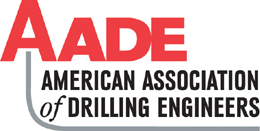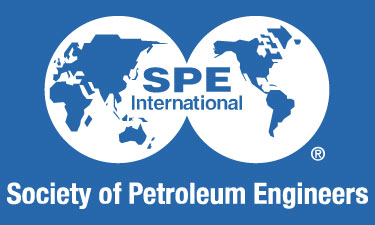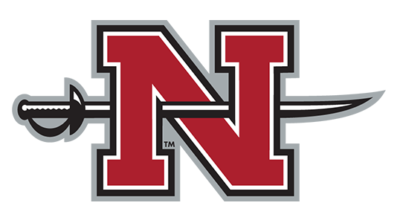STUDENT RESOURCES
CAREERS
PETSM students are provided with marketable skills that greatly help them in seeking promotions and advancing to managerial positions. The program works with a host of industry companies, including major energy companies, which actively recruit graduates through on-campus interviews.
The associate degree program prepares students for the more complex technical and lower-to-middle management positions in production and drilling operations. The bachelor’s degree program courses and work experience prepares students for middle- to upper-level management positions. Petroleum services graduates are employed by drilling contractors, service companies and major oil and gas companies. Starting annual salaries at $60,000.

Examples of jobs held by current and former students are as follows:
| Degree | Job Title | Employer |
| Bachelor’s Degree in Petroleum Services | Lease Operator | Wood Group PSN |
| Production Superintendent | El Paso Gas Company | |
| Production Tech | Valero Refinery | |
| Bachelor’s and/or Associate’s Degree inPetroleum Services | Wire Line Operator | Halliburton |
| Drilling Representative | Exxon Mobil | |
| Drilling Representative | Chevron | |
| Lease Operator | Chevron | |
| Associate’s Degree in Petroleum Services | Production Operator A | Hill Oil Corporation |
| Production Operator A | Chevron | |
| Compliance Coordinator | BSEE | |
| Logistics Coordinator | Halliburton | |
| Port Captain | Montco Boat Company | |
| Lease Operator | Danos & Curole |
Visit the Nicholls Career Services Web site to get job search tips and post your resume online.
View the Career Guide to the Safety Profession from the American Society of Safety Professionals and Board of Certified Safety Professionals.
Protecting America’s work force, the general public and the environment from injury and illness in today’s age of technological and scientific advancement has become one of the most challenging and rewarding career field available. The safety professional has the responsibility for studying materials, structures, codes and operations to find the best way to use resources to control hazards, those things which can lead to accidents, illness, fires, explosions, etc. Starting annual salaries $60,000.
The safety technology program prepares its students for technical- and management-oriented positions in:
- businesses,
- education,
- research organizations,
- government agencies and
- industries, such as:
- construction
- energy
- chemical
- manufacturing
- shipyard
- marine transportation
- insurance
- marine
- petroleum
The oil and gas industry, which drives the economic base the state and nation, embraces a culture of safe and environmentally friendly exploration, development, construction and distribution of the nation’s oil and gas supply. The protection of social and economic losses resulting from accidents in the oil and gas industry is a challenge Louisiana and the nation — a challenge being met by the safety technology program at Nicholls by providing qualified and competent safety technologists.
Students are prepared for positions as:
- compliance officer,
- safety engineer,
- health and safety manager,
- loss control specialist,
- trainer,
- program administrator,
- inspector and
- investigator.
What is Petroleum Engineering Technology and how is it different from Engineering?
Basically engineering focuses on theory and conceptual design, while engineering technology focuses on application and implementation.
Our programs will educate students on the upstream portion of the industry – drilling, production and safety. This program will prepare students:
- for elevated management positions in drilling, production operations, well services and completion or the service and supply component in the oil and gas industry
- in areas safety, health and environmental segments of any industry
Our courses expose students to multi-segmented aspects of the industry in these areas:
- Exploration (Drilling and Completions) – the initial phase of searching of oil and gas. Next, the well is drilled and then completed. This phase has a business organizational structure and critical safety aspects which are presented in a similar way through the PETSM curriculum.
- Production – the next phase where oil and gas are extracted.
- Well Services (workover and intervention) – highly specialized and complex intervention methods performed throughout the lifecycle of a well. PETSM courses engage students in the operations required to enhance well production safely and efficiently.
- Plug and Abandonment – the permanent closing of a well. PETSM courses include common regulatory requirements for safe and environmental surety of well closures.
- Health, Safety, and Environment (HSE) – An aspect present in all areas of the industry. Adherence to HSE guidelines is required worldwide and dictated by internal policies of most corporations.
The PETSM curriculum goes beyond compliance to personal safety requirements and prepares graduates to effectively manage safety systems. Our courses are designed to promote opportunities as professional HSE specialist, HSE consultants, and HSE engineers.
Please click on this link to find out more on the difference between Engineering and Engineering Technology.
STUDENT ORGANIZATIONS
The PETSM program encourages student to join support groups and professional organizations that will be a positive influence not only in the classroom but in achieving employment after graduation. Student organizations meet regularly and attend various professional functions throughout the semester.
VISIT THE WEBSITES BELOW FOR SCHOLARSHIP OPPORTUNITIES.
The mission of the AADE is to provide a forum for the dissemination of practical drilling technology to those employed or interested in the drilling industry.
The Student Section of the American Association of Drilling Engineers allows students to network with professionals and learn about the latest drilling practices and technology.
The organization, which hosts guest speakers from the oil drilling industry, also participates in community service, such as the Rebuilding Together projects which allowed AADE members to help restore a dilapidated New Orleans home. AADE strives to promote professionalism and respect within the drilling industry, the community and the environment in which it co-exists.
To join the Nicholls Student Section of the AADE, please visit the AADE New Orleans website.
For more information, please contact Mr. Michael Gautreaux at michael.gautreaux@nicholls.edu.
American Society of Safety Engineers (ASSE) is now the American Society of Safety Professionals (ASSP) to reflect the diverse disciplines that make up the vibrant safety community.
The Nicholls Student Section of the Bayou Chapter of the American Society of Safety Engineers was developed to promote the advancement of the safety profession and safety education among its members within its campus and community. Participation within the student section will help make the members entrance into safety/health careers easier. The interaction with the Bayou Chapter is an excellent opportunity to network and learn from the present leaders of our future profession. There are also available scholarships as well as internships/job opportunities.
To join the Nicholls Student Section of the ASSE, please visit the ASSE website.
For more information, please contact Dr. Milton Saidu at milton.saidu@nicholls.edu.
SPE makes it easy for you to network with industry professionals and possible employers, benefit from technology discussions at SPE meetings and events and receive society sponsored scholarships.
This association aims at enhancing the professional and social bond between students of petroleum engineering and the oil and gas industry.
To join the Nicholls Student Section of the SPE, please visit the SPE website.
For more information, please contact Mr. Michael Gautreaux at michael.gautreaux@nicholls.edu.
7/7 AND 14/14 SCHEDULING
PETSM is uniquely designed to accommodate professionals working in the energy industry. In 1973, the program was designed to accommodate a 7 on 7 off rotation with Wednesday crew change days. As the years have gone by, the 14 on 14 off rotational schedule has become the norm.
PETSM has adapted over the years and continues to provide access to potential students in the energy industry wanting to pursue higher education. The degrees are designed so that a student working full time on a rotational schedule can finish the associate’s degree program in 2 years and receive a bachelor’s degree with 2 more years of study. Students have a choice to pursue an associate’s degree that would apply to either Bachelor of PETC or SMGT.
A typical fall or spring semester will have 15 weeks and during each week the core petroleum or safety courses are taught on a Tuesday and Thursday. Class meetings are numbered class 1 through class 15 starting with the first week (class 1) and ending on the last week (class 15) of the semester. The instructors will teach the same class using the same content on a Tuesday and again on Thursday each week of the semester. Basically, each Tuesday class will be mirrored on Thursday and vice-versa. Students only need to attend class once a week depending on their availability (either Tuesday or Thursday). All required general education (English, Math, Science, History, etc.) are offered online. (On campus tests may be a possibility). In addition, there are a number of core courses (petroleum and safety) taught online including independent study or classes taught with a hybrid delivery method (a combination of face to face and online material).
The bottom line here is you will miss some of the required core face to face classes but all lecture materials, quizzes and tests are managed in the course management online system called Moodle. This allows you to still participate, complete and submit assignments, take quizzes and exams and network with classmates through email and forum postings. However, departmental standards for class participation credits require a minimum number of attendance for in class courses. This means your final grade could be affected negatively if you can not meet the minimum established course meetings required.
The program also has a buddy system where a student that cannot make it to class every week is paired up with a student who is attending class every week. This provides the student missing class time networking opportunities to keep up with what he/she might have missed. The weekly class lectures are also recorded and available as a streaming video to students who might miss one of the weekly course offerings due to their work schedule.
The instructors PETSM also play a big part in the success of the program. Many of the instructors in the program have worked offshore and are aware of the special circumstances that can arise with a 7 & 7 or 14 & 14 schedule.
PETSM currently has the safety associate 100% available through Nicholls Online and we are working to transform the petroleum associate level core courses to be offered with 100% online delivery. At first glance, the scheduling options offered may look confusing and intimidating but once you became familiar with the layout it is a very simple and straight forward concept. To summarize the 7 & 7 scheduling: Students attend class once a week when they are back onshore and complete any required coursework online when they are not in class.
SUCCESSFUL ALUMNI
Your connection to the Petroleum Engineering Technology & Safety Management program doesn’t have to end after graduation.
Update Your Profile!
We want to stay in touch with you! Please help us by filling out this short form, CLICK HERE.
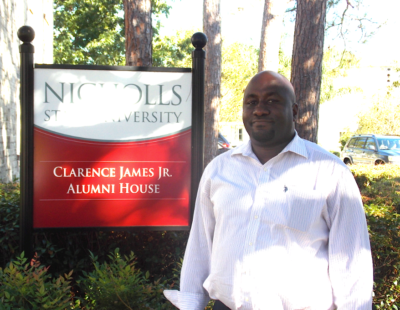 Deepwater Regulatory Specialist – Shell
Deepwater Regulatory Specialist – Shell
After about 10 years in the oil field, Tamarris Durham decided to get a degree that would further his career in the field, and Nicholls turned out the be the perfect place. Our university offers unique coursework that allows those in the oil field to continue their education while working.
“So the oil field is kind of divided—you have the drilling folk, you have the production folk that produce the oil and gas after it’s drilled, and you have those folk that service the oil field,” Tamarris said. “Our program here [at Nicholls] is kind of a combination of all that. It takes a person that has no knowledge of the oil field and walks them out of the doors having knowledge of how the oil field works.”
Through his classes at Nicholls, Tamarris learned why he did what he was doing offshore and how to do it more effectively and safely. It brought a new perspective to his work, but it was more than that. Through his coursework, which eventually lead to a degree in Petroleum Engineering Technology, Tamarris was able to come into contact with industry professionals, who were his instructors and mentors. Because of the program and his involvement with the Society for Petroleum Engineers, Tamarris was able to network with people he otherwise wouldn’t have come into contact with. This eventually led him to a job at Chevron, where he was hired (and promoted) all before he even finished the program.
“Right now I work for Shell Oil,” Tamarris said. “I’m a Deep Water Regulatory Specialist. So what do now is…my job is to transfer the application to drill from the engineers at Shell to the government, The Bureau of Safety Environmental Enforcement. Prior to Macondo, a permit was about 40 pages, and now they’re about 400 pages. So I take inputs from the engineers—the engineers don’t speak in regulatory terms—and put that in a language that the government understands.”
Tamarris really has to take on several different roles and understand various forms of technical language to do his one job. As a Deep Water Regulatory Specialist, Tamarris has to mediate between the engineers and the government to make sure regulatory processes are followed and to ensure that the logistics of the operation work. He has to have a working knowledge of both the governmental and technical engineering sides.
“Nicholls is the only place where a person that works offshore can come in, go to college on your seven days off, and then go back offshore to work,” Tamarris said. “I worked seven-and-seven the whole four or five years I was at Nicholls. It’s the only place you’ll find that kind of education.”

Health, Safety & Environmental Manager
Oil States
While Page Durocher started at Nicholls, because he was from the area, he felt easily distracted. To focus on his academics, Page left to attend the University of New Orleans, where he graduated in 1994 with a bachelor’s degree in biology. It wouldn’t be very long, however, before he returned to his home.
“Then I moved to Texas for a few years, and I worked for Texas Parks and Wildlife, and had the opportunity to come back to Houma and work as an environmental manager for an oil field service company,” Page said. “So I took that opportunity and it soon became evident that while the environmental part of the job was important, it wasn’t as critical as the safety of the people that were involved in that manufacturing facility. And it was the precursor to the company that I’m working for now, Oil States.”
But eventually, Nicholls called him back, with a degree that was indispensable to his job. So he went back to school.
“I found out about this Safety Technology program [a year after I started with the company] in ’98, and Oil States was good enough to say that they’d send me back to school and pay for it,” Page said. “So I came back to Nicholls for the Safety Technology degree. In 2000 I received that associate’s degree.”
Now Page works as a Heath Safety Environmental Manager for Oil States. He must manage all of the aspects of health and safety for the employees at Oil States, as well as expand and support at the same time. As a safety manager, Page must also tackle any environmental issues that the manufacturing facility has. Page learned much in his time at Nicholls, and it gave him the professional know-how to perform his job more effectively and efficiently.
“[Nicholls] helped tremendously, because I was working in the field and after I had the opportunity to go back and learn a whole lot more about safety than I could just read in magazines and books and training classes,” Page said. “We got into the depths of what it actually means to manage the safety. Then I knew the lingo. I could understand what people were talking about when, where and how. It was a tremendous help.”
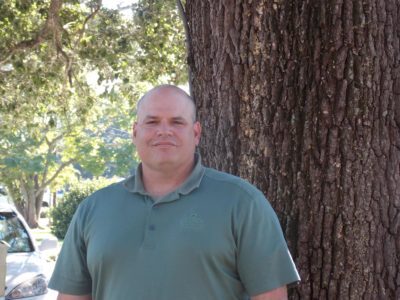 Senior Account Manager
Senior Account Manager
Superior Energy Services
Christian Falcon credits Nicholls with being able to see his family more often. Before he finished his degree at Nicholls, Christian worked everything from seven and seven to 14 and 14 to 28 and 28. In 2008, Christian earned a bachelor’s degree in petroleum technology and an associates degree in petroleum safety.
“I like my job,” Christian said. “I’m home every night if I want to be. I don’t have to be on the rigs anymore. I put 15 years in the field away from my family half the year, but now I don’t have to do that anymore. It’s a direct result of my degree.”
Right now Christian is a Senior Account Manager for Superior Energy Services. In this position, Christian works in the sales department, calling upon customers to find new work or following up on completed work. He works on completions in the wells, this includes fracking. But Christian explains that frack work is less controversial than people realized.
“My group fracks in deep water, offshore in the Gulf of Mexico—the one that they usually have issues with are the ones in Pennsylvania,” Christian said. “The biggest thing is that they think that we are going to have problems with the drinking water. The last thing any oil company wants to do is frack in the drinking water, or any water, because if you do that, you don’t have a well, because then all you’re going to produce is water. You don’t make anything producing water; you make it producing oil. Enough surveys through there, seismic and other surveys to know what’s there and they make sure that they’re nowhere near water when they frack.”
Because of Nicholls, Christian has a college degree. With his busy schedule, especially when working offshore for days or weeks or even a month at a time, going to school at any other institution would have been impossible.
“I can say that without this program, I would not have a college degree,” Christian said. “When I started, I had a wife, children, and the only thing I could do was to work seven and seven and 14 and 14 if I wanted to get a degree, and that’s what I did. It took me 15 years. I started in ’93 and I went to school for a year and a half, took off four or five years. Then I went back for a year. Then I worked overseas, 28 and 28. It was just pieces here and there. And finally, toward the end, between my mom and my wife pushing me, I went ahead and graduated. When I talk to students, I usually—instead of talking to them about things that most people talk to them about—I usually tell them about perseverance, that just because you get out doesn’t mean you can’t come back in. That’s the message I try and get across to the students.”
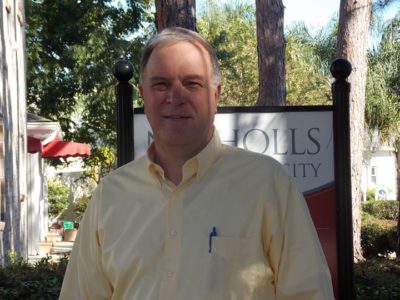 Development Manager
Development Manager
C&D Production
Herbie Kimble’s Nicholls education not only helped him network with future customers and begin to form business relationships, it helped him start his career.
As the business development manager for C & D productions, Herbie is in charge of finding new clientele and expanding the business.
“We have offices across the country and my job is to identify new prospects and new customers,” Herbie said. “We provide contract labor, personnel to oil and gas producers. My job is to identify customers who use our services to grow the business.”
Herbie’s received a degree in business administration from Nicholls, and it laid the foundation for his future job in the oil field. Nicholls allowed Herbie to foster relationships with future customers for C & D. It also allowed Herbie to network and foster relationships with these customers and others in his field.
Other than a great education and plenty of networking opportunities, Nicholls did one more thing for Herbie.
“Actually, someone from Nicholls hired me. I grew up in New Orleans and I met a guy that was looking for someone to work in Morgan City,” Herbie said. “And 35 years ago, I moved to Patterson to go to work in the oil field, and that was it. He was working in the oil field, and I answered an ad. I came to find out he was a Nicholls graduate. So I worked with him for probably 15 years before he retired.”
Being a Nicholls graduate is precisely what landed Herbie his first job in the field.
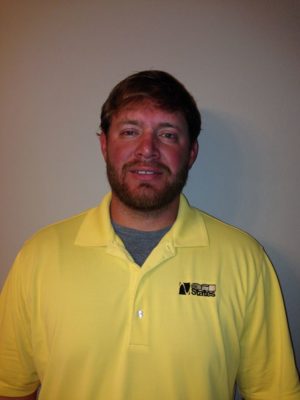
Training Manager
Oil States
With a Nicholls degree in hand, Jeff Ledet was able to progress more readily in his field. It gave him the confidence he needed to excel as a training manager at Oil States.
After working about a year in the oil field, Jeff was encouraged by his employer to pursue a higher education, so that’s just what he did. In 2011, Jeff finished with an associate’s degree in Safety Technology. Jeff was able to keep his job while he was in school, and that was important for him.
“Having that opportunity to work and go to school kind of makes it a little easier because you’re actually doing what you’re going to study for,” Jeff said. “Most of the stuff you use in class, you can also use on the job.”
The relevance of his coursework to his job made school easy to relate to, and it was applicable to what Jeff was working on. He was able to gain more background knowledge about the field he was in and that allowed Jeff to advance in his position. The health and programming class that Jeff took proved to be especially helpful for him. It went over adult learning principles, classroom styles, and it was presentation based. While in the class, students worked with PowerPoint frequently and presented in front of the class and crowds.
As a training manager, Jeff gives presentations at least once weekly, from anywhere from 10 to 300 people. This class made Jeff feel more comfortable while giving his presentations. It gave him the experience he needed to be confident in his public speaking abilities.
“Actually I still use some of my notes [from Nicholls] for the training aspect,” Jeff said. “Now I’m a training manager…. We keep people safe, and we teach people how to keep themselves safe.”
Admissions, Advising, and Transfers
1. I am interested in the PETSM program, where do I begin?
If you have questions about the program you may ask by clicking here or call 985-448-4739. The first step to becoming a student is to apply for Admission to the University.
2. How do I schedule my courses?
If you are a first time freshman, it is mandatory for you to attend freshman orientation where you will create your schedule. Please see admissions for dates. If you are a transfer student, contact the transfer student resource center to create a schedule of classes. To schedule an appointment, please call 985-448-4117.
3. I am currently at another University and am looking to transfer to the PETSM program and NSU. Where do I start?
The first step is to apply as a transfer student to the University. You will need to send an official transcript from your previous institute to Nicholls. Please visit the Transfer Resource Center.
Career Opportunities and Internships
1. What job opportunities are available after graduation?
While the PETSM Program does not ensure you a job, students are able to work with Career Services to explore jobs in their chosen field. Some students find themselves becoming:
- Rig superintendent
- Offshore installation manager
- Safety supervisor
- Field foreman
Many students also complete internships with companies during their time in the program.
2. Do I have to have a job or be working to do this program?
No, you do not. The program works with students currently working, but it is not a requirement that you work while in the program.
Class Schedule
1. What kind of schedule does the PETSM program work with?
The program is designed to work with students who work a 7/7 or 14/14 schedule. Classes are taught on campus on Tuesdays and Thursdays and through online instruction.
2. What is best day to schedule a shift change to accommodate classes?
Wednesdays are the preferred days to have a shift change, seeing as there are seldom classes on this day.
3. What other schedules can I work?
Students can work 28/28 schedules while taking general education courses and online classes, but they would have to set a schedule with the instructor to make up missed presentations, projects, and lab work while not on campus.
4. What can I expect if I work something other than 14/14?
These students will be responsible for working ahead of time and working closely with their instructors. They need to be self-disciplined, excellent with time management, and must be somewhat of an independent learner.
Degree Programs
1. What majors/ areas of study does the PETSM program offer?
In the PETSM program, students can gain either an Associate’s Degree (60 hours), or a Bachelor’s degree (120 hours) in the following areas:
- Associate in Safety Technology
- Associate in Petroleum Engineering Technology
- Bachelor in Safety Management
- Bachelor in Petroleum Engineering Technology
2. About how long will it take me to finish each program?
Typically, the Associate’s Degree takes about 2 years to complete, while the Bachelor’s Degree takes about 4 years.
Online Courses
1. Can I complete all of my classes online?
Yes – classes are offered online through Nicholls Online Degree Programs. Contact Nicholls Online at online@nicholls.edu for more information.
3. What is the difference between online and hybrid classes?
Online classes are completely online, while hybrid classes only have select class meeting on campus. Students complete tests, quizzes, assignments, and forums on the online system Moodle.

